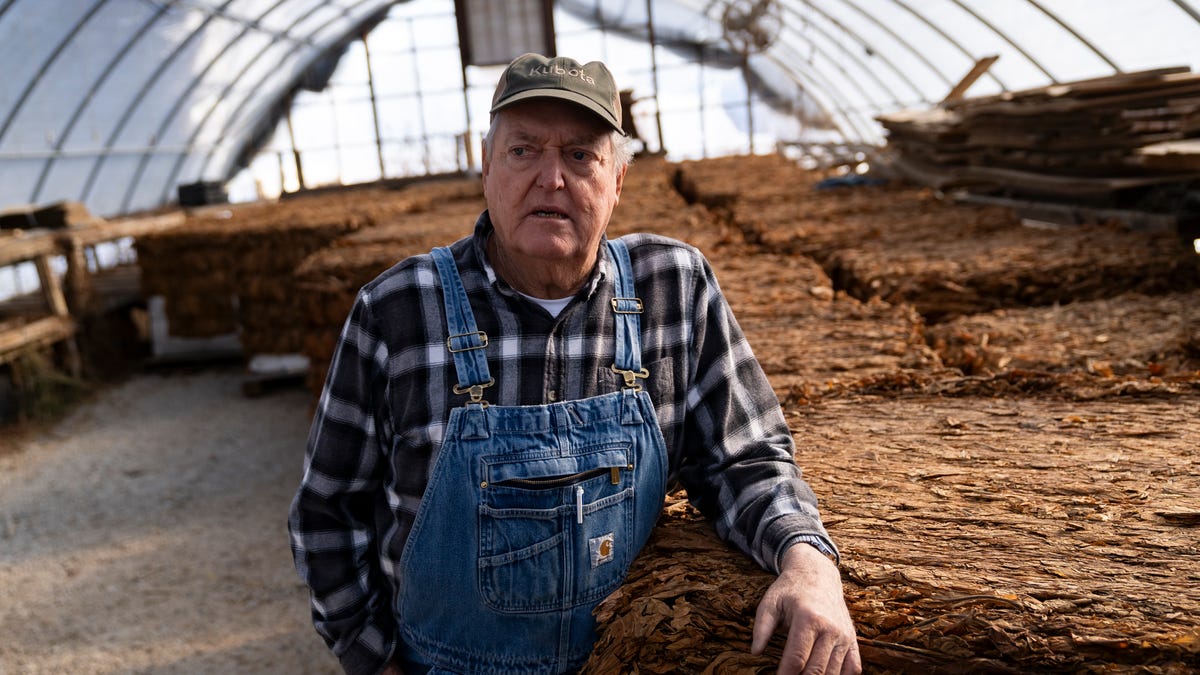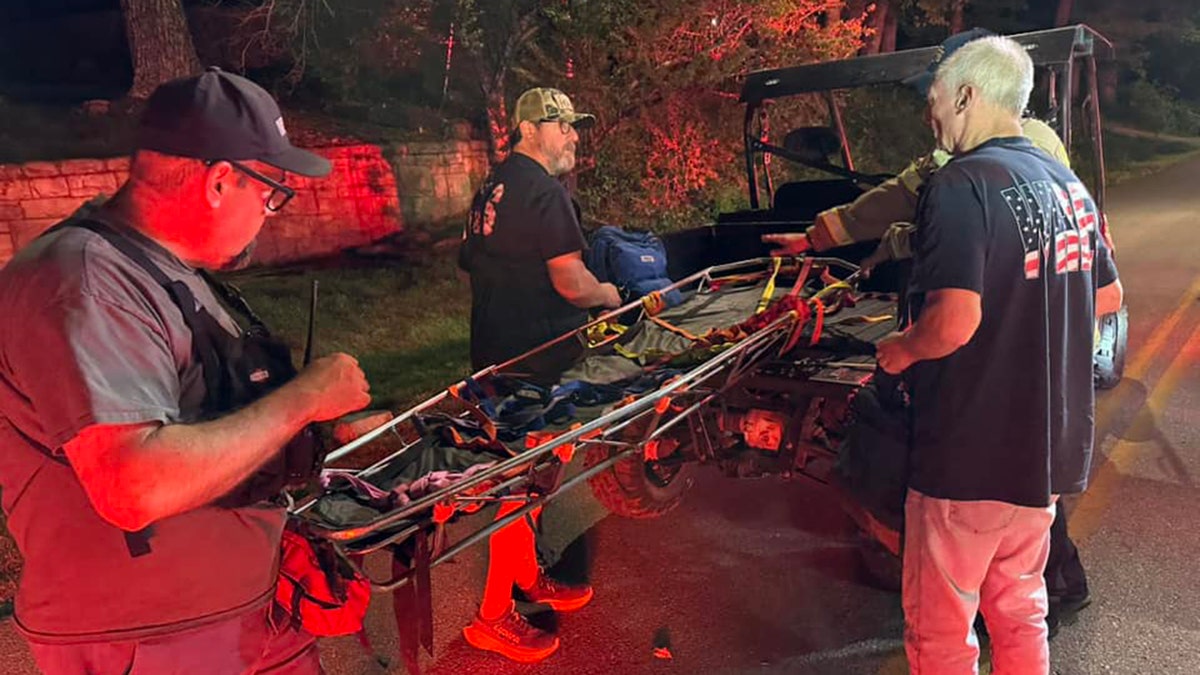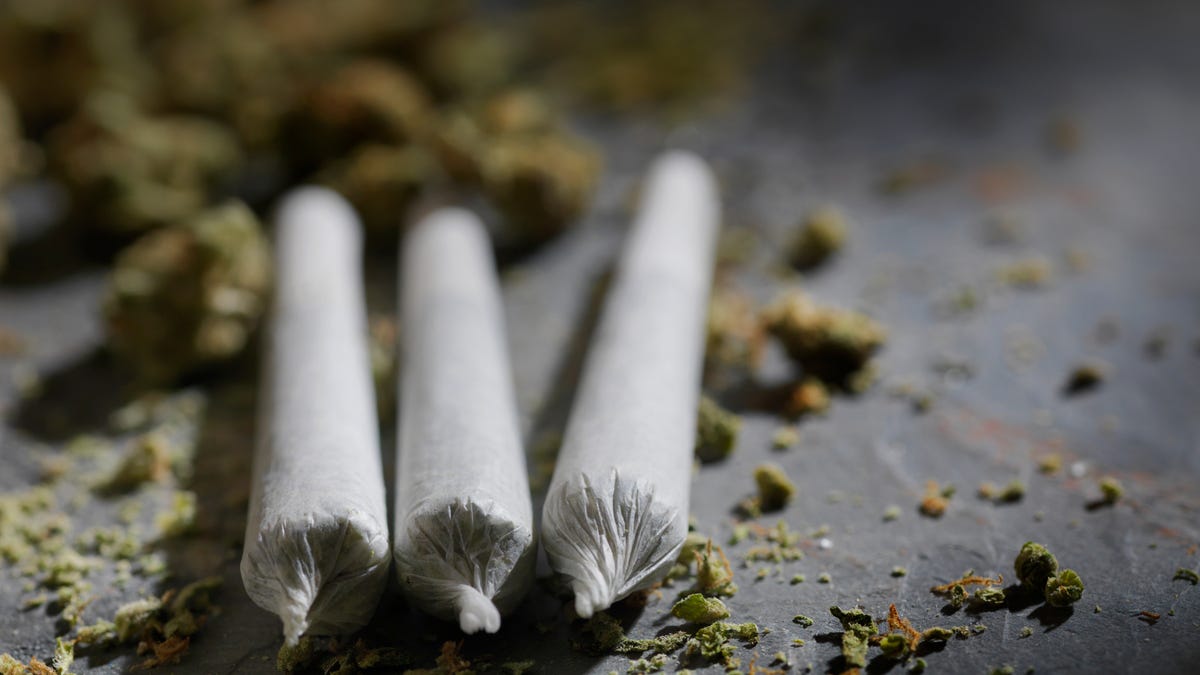Tennessee
Tobacco farming, once integral to Southern and Tennessee culture, has virtually vanished

Tobacco farming — once central to the South’s economy and culture — has all but vanished from the region.
The end of government support for the crop in 2005, coupled with a sharp decline in smoking and stiff global competition from China, India and Brazil, guaranteed a decline in tobacco production. But even experts have been surprised by how quickly the crop has faded from prominence.
“The magnitude of loss in farms is pretty alarming,” said Will Snell, who studies tobacco production at the University of Kentucky.
The most recent data collected reveals a severe drop in tobacco production, according to the 2022 U.S. Department of Agriculture’s Census of Agriculture released in February.
The number of U.S. farms growing tobacco shrank 95% from 2002 to 2022. Meanwhile, Tennessee saw a 97% decline in tobacco farms. Only 241 Tennessee farms grew tobacco in 2022 compared to 8,206 farms in 2002.
The rise of vaping and nicotine pouches has further reduced the demand for tobacco.
As predicted by experts, the farms that continue to grow tobacco have increased the number of acres they devote to the crop.
The average Tennessee tobacco farm was 4.4 acres in 2002. In 2022, it jumped to 51.4 acres, according to the Census.
“I think we’re down to a critical mass of growers,” Snell said.
In Tennessee, the little tobacco farming that remains has concentrated in Middle Tennessee, said Mitchell Richmond of the University of Tennessee Institute of Agriculture.
Richmond, who comes from a farming family, remembers when a few acres of lucrative tobacco was essential to a family farm in Tennessee.
“A couple of acres max of tobacco is how a lot of families would pay for the farm, pay for the Christmas groceries,” he said.
Many people Richmond knows paid for their college by working for tobacco growers in the summers.
Other crops, like watermelons and hemp, have held promise as new high-value cash crops but haven’t matched the onetime-prominence of tobacco.
“There’s never really been a crop that has come through since that can replace that kind of income,” Richmond said.
Todd A. Price is a regional reporter for the USA TODAY Network. He can be reached at taprice@gannett.com.

Tennessee
Tennessee hiker drowns trying to save woman who fell into creek; rescuers recover both bodies

A 23-year-old woman and 20-year-old man drowned near a hiking trail in Tennessee on Sunday after the woman fell into a creek and the man jumped in to try and save her, authorities said.
Police responded around 7:13 p.m. to a 911 call about the pair going underwater near Rainbow Lake Trail in Signal Mountain, the Signal Mountain Police Department said.
First responders hiked about a mile down the trail when they encountered a woman waiting for them to arrive.
The woman told officials that she was with a group of three to four people who hiked on the trail to a large creek.
CLIMBER IN ALASKA’S DENALI NATIONAL PARK DIES AFTER 2 FALL 1,000 FEET OFF MOUNTAIN
The man and woman were part of a small group hiking the Rainbow Lake Trail. (Hamilton County Office of Emergency Management & Homeland Security)
One woman tried to cross the creek but fell into a “drop off” and went underwater, according to authorities. A man from their group then jumped in after her, but the pair never resurfaced.
Police and fire personnel jumped into the water to find and rescue both victims, the department said.

The woman fell into a “drop off” and went underwater, police said. The man jumped in after her but also disappeared beneath the water. (Hamilton County Office of Emergency Management & Homeland Security)
Rescuers found the woman in the water and pulled her onto land. They performed life-saving measures on the woman, but she was pronounced dead at the scene.
Officials requested additional assistance while searching for the missing man. His body was eventually recovered from the water.
CALIFORNIA MAN FALLS 300 FEET TO DEATH WHILE HIKING WITH WIFE ALONG OREGON COAST

First responders recovered the bodies of both victims. (Hamilton County Office of Emergency Management & Homeland Security)
Police later identified the woman as 23-year-old Greffania Merilus, of Cohutta, Gerogia, and the man as 20-year-old Gullson Elve, of Birchwood, Tennessee, News Channel 9 reported.
Officials told the station that the pair were “really close friends.”
Following the two deaths, Signal Mountain Town Council Member Susannah Murdock told Local 3 News that she is calling for additional signage along the trail to warn hikers about potential dangers in the area.
CLICK TO GET THE FOX NEWS APP
“We got this pretty sign up here that says Rainbow Lake, and it’s a beautiful place down there, but they don’t know the terrain is rocky and bumpy and can be steep in places,” Murdock said. “When we’ve had a lot of rain, there’s water that flows down there pretty rapidly.”
Tennessee
Baseball stats: Blankenship the home run king of Northeast Tennessee
Tennessee
Cannabis in Tennessee: What push to reclassify marijuana to Schedule III may mean

Medical marijuana found to treat depression, anxiety and improve sleep
A new study has found medical marijuana can help treat those diagnosed with depression, anxiety and improve sleep.
The Drug Enforcement Agency could move to reclassify marijuana to a lesser severity in what’s being reported as the “biggest change in marijuana policy” since the drug was first outlawed.
The proposal, first reported by The Associated Press, would follow a Department of Justice recommendation and lead the DEA to take public comments on a plan to recategorize marijuana, USA TODAY reports.
In this reclassification, marijuana would move from a Schedule I drug which is believed to be highly dangerous, addictive and not for medical use to a Schedule III drug that can be lawfully prescribed as medication. Marijuana has been a Schedule I drug since the Controlled Substances Act was signed in 1970 by President Richard Nixon.
Here is what we know about the reclassification.
What does rescheduling cannabis mean for Tennessee?
While this would be a landmark change, it would not change the state’s current cannabis regulations. It would still be a controlled substance even with the new classification. That said, 24 states have legalized marijuana for recreational use and 14 have legalized it for medical use.
In 2022, President Joe Biden directed the Department of Health and Human Services, or the HHS, to conduct a review of how marijuana is scheduled. In the review, the HHS recommended that the drug be rescheduled to a Schedule III.
Marijuana being classified as a Schedule III drug means it would be classified alongside drugs including ketamine, testosterone, anabolic steroids and Tylenol with codeine, USA TODAY reports. These drugs have “moderate to low potential for physical and psychological dependence,” according to the DEA.
The laws regarding Schedule III drugs in Tennessee vary as some drugs are legal with limitations and others are not. Therefore, it is hard to tell if the reclassification of marijuana to a lower schedule would sway Tennessee lawmakers to legalize the drug in any way.
Is marijuana legal in Tennessee?
There is no short answer to the question of whether marijuana is legal in Tennessee for a couple of reasons. Part of the confusion can stem from the various terms − cannabis, marijuana and weed − that might seem interchangeable but are not, at least not as Tennessee defines them. Hemp just adds to the confusion.
The defining difference between hemp and marijuana is their psychoactive component: tetrahydrocannabinol, or THC. Hemp has 0.3% or less THC, meaning hemp-derived products don’t contain enough THC to create the “high” traditionally associated with marijuana.
Tennessee has legalized the cultivation of hemp and defined hemp as cannabis sativa containing less than 0.3% THC. Cannabis sativa containing greater than 0.3% THC, which is defined by Tennessee as marijuana, is still illegal.
While marijuana is not legal, in Tennessee you can buy products containing CBD, or cannabidiol, an active ingredient in cannabis that is derived from the hemp plant but does not cause a high and is not addictive.
Is marijuana a dangerous drug?
Marijuana has been hard to study because of its classification. However, the move to reschedule the drug is largely due to the lower public health risks, federal scientists have said. The rescheduling of marijuana to a Schedule III drug would allow for further studies to be done.
In a leaked HHS document, officials wrote to the DEA in support of rescheduling the drug. Marijuana’s risk for addiction is similar to that of tobacco and has relatively mild withdrawal symptoms compared to alcohol. According to the National Institute on Drug Abuse, or NIDA, there are no known deaths from a marijuana overdose.
Despite the less intense symptoms, the drug does affect physical and mental health. According to NIDA, it can cause permanent IQ loss for people who begin using it at a young age. Long-term use has been associated with temporary paranoia and hallucinations. Marijuana can exacerbate symptoms with disorders like schizophrenia.
NIDA found that marijuana smoke has a similar health impacts to tobacco smoke. People who smoke marijuana frequently develop issues with breathing similar to those of tobacco smokers.
Respiratory issues include daily cough, phlegm and a higher risk of lung infections, however, the American Heart Association said it’s unclear if marijuana causes a greater risk of lung cancer.
Health benefits of marijuana
The cannabis plant has been used for medicinal purposes for centuries, if not millennia. It appears to help with treating pain, insomnia, anxiety, and glaucoma, among other health conditions. Still, evidence is mixed and more research into its health benefits is needed, researchers at Johns Hopkins Bloomberg School of Public Health said in August.
While cannabis is not approved for any medical use by the FDA, several drugs containing cannabinoids, or substances such as THC or CBD, have been approved according to the National Institutes of Health.
USA TODAY and Tennessee Connect reporter Liz Kellar contributed to this report
-

 Education1 week ago
Education1 week agoVideo: Dozens of Yale Students Arrested as Campus Protests Spread
-

 World1 week ago
World1 week agoEU sanctions extremist Israeli settlers over violence in the West Bank
-

 Politics1 week ago
Politics1 week agoFetterman hammers 'a–hole' anti-Israel protesters, slams own party for response to Iranian attack: 'Crazy'
-

 Politics1 week ago
Politics1 week agoDemocrats hold major 2024 advantage as House Republicans face further chaos, division
-

 World1 week ago
World1 week agoPeriod poverty still a problem within the EU despite tax breaks
-

 Politics1 week ago
Politics1 week agoA battle over 100 words: Judge tentatively siding with California AG over students' gender identification
-

 News1 week ago
News1 week agoUniversal Studios Tram Crashes, 15 Injured, 1 Critical
-

 Movie Reviews1 week ago
Movie Reviews1 week agoShort Film Review: Wooden Toilet (2023) by Zuni Rinpoche



















